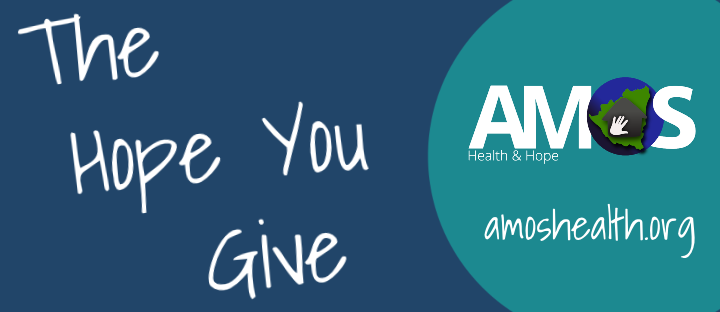
Oct 5th, 2018
Dear AMOS friends,
It’s been more than five months since the crisis in Nicaragua began. Despite all the challenges and the uncertainty the country has gone through, we are grateful beyond words for your continued support that has made it possible for us to continue to serve over 69,000 vulnerable people in 6 regions of Nicaragua.
We feel it is important to share with you an update on the situation in the country, considering four key aspects:
- Removal of opposition roadblocks and decrease in daily violence
- Lack of resolution to the current socio-political conflict and mounting international pressure against the Nicaraguan government
- Continued devastating economic impacts of the crisis, especially for the poorest and most vulnerable families
- The most recent AMOS response to growing needs
In order to keep you well informed, we have been constantly assessing the conditions in the communities we serve and monitoring developments in the current crisis. We have kept in touch regularly with community health workers in order to better address their current needs and ensure the safety of our staff traveling out to rural communities.
Removal of the opposition roadblocks and the decrease in daily violence
Roadblocks run by anti-government protestors were in place from May through mid-July in both the city of Managua and throughout the country. At their peak, there were over 120 roadblocks. These prevented free movement resulting in violence at the site of roadblocks, loss of transport of produce, food and medicine shortages in rural communities, stress and anxiety. Since the middle of July, all major roadblocks have been completely removed by police and governmental authorities.
Transportation everywhere in the country has normalized so that commerce and the general population are able to move freely about the country. While there are no longer reports of daily violent clashes between protesters and police, marches and other demonstrations continue to take place in Managua and other towns multiple times a week Most notably in Managua, there have been marches organized every weekend, both by the pro-government and opposition groups, always favoring parts of the capital where there is significant traffic. On a few occasions, there have been some incidents of clashes related to these marches, leading to injuries and at least one death. However, the overall levels of violence have decreased significantly throughout the country. The area of Nejapa, where the AMOS campus is located, remains safer and without incidents.
Lack of resolution to the current socio-political conflict
The national dialogue process, which began in May, has been suspended indefinitely since July 9th, yet we have seen some steps taken to try to resume it. The crisis in Nicaragua has been discussed both in special sessions by the Organization of American States and the UN Security Council, but the statements issued have not brought the two sides back to the table. We pray and remain hopeful for a peaceful resolution to the current crisis that can bring healing and long-lasting peace to Nicaragua.
In recent weeks, local news and protests on both sides of the conflict have centered on the arrest and trial of hundreds of anti-government protesters on charges such as posession of weapons, terrorism, vandalism, and other crimes. Recent reports on the total number of deaths due to the unrest vary depending on the source, with ranges from 197 to more than 400, over 2,000 people injured, and hundreds reportedly gone missing. Human rights and anti-government groups claim almost 500 deaths have occurred among the opposition while the government claims that almost 200 deaths have occurred among pro-government groups including many policemen.
The polarization in Nicaragua is evident throughout society, with large groups of people that are passionately against the government while other large groups are passionately in favor of the government. We pray for no more violence from either side of the conflict and a peaceful negotiated resolution to the underlying causes of the conflict so that no more deaths will occur in Nicaragua.
Continued devastating economic impacts of the crisis, especially for already vulnerable families
The crisis has severely impacted the economy throughout the entire country. Many businesses, private and public schools, national and international non-governmental organizations, and tourism agencies have had to stop working due to the crisis. Private and public institutions have reportedly had to lay off over 340,000 workers. Due to the economic impact of the crisis, the National Assembly approved a reform to the national budget in August with extensive spending cuts. The most affected sectors were health and education, with a significant reduction in their operating expenses.
People continue to lose their jobs every day and thus their ability to provide for the basic needs of their families. This means more families have fallen into poverty and extreme poverty in what already is the second poorest country in the Western Hemisphere.
Through our communications with community health workers, we have learned about the serious economic consequences for rural communities, such as:
- Landowners not hiring as many day laborers or seasonal farm workers, which are the main source of employment for rural families
- Small farmers not able to get loans to plant their crops
- Shortages of medicines
- Food insecurity due to higher food prices and unemployment, which will impact children’s nutrition
- Irregular transportation services and increased bus fares, creating more obstacles for emergency transportation out of the communities
- Farmers having their harvested goods bought below fair market price
- Generalized feelings of insecurity and anxiety
The most recent AMOS response to growing needs
During this difficult situation, the work you are helping AMOS do becomes more important than ever. With love, faith, and hope, we are working together to be able to cope with this tragic situation in the best way possible by continuing to serve people in all our partner communities.
As a result of our organizational commitment to sharing health and hope, AMOS was able to reach all the communities we serve by the end of July to replenish the stocks of essential medicines and medical supplies needed for patient care for the rest of the year!
This means pregnant moms have access to prenatal multivitamins; children with pneumonia, diarrhea, and fevers can receive treatment in their own communities; patients with chronic illnesses are getting the medicines they need regularly; and any accidental wounds can be taken care of without delay.
Our health programs to address the vulnerable people of Nejapa have also continued, offering critical health services in our Samaritan Clinic, as well as health education and emotional assistance in the support groups for pregnant women, patients with chronic illnesses, the youth, and early childhood development.
As part of our efforts to help bring hope to the people we serve amidst the crisis, this September, we gathered our health promoters and health committee members from 22 rural communities and our urban community of Nejapa for a one-week Conflict Transformation Training. All AMOS Program staff were trained by conflict transformation expert, Dan Buttry, earlier this year. The goal of this training in September was to provide community leaders with tools and techniques to deal with trauma, facilitate healing, and promote peace and spaces of respectful dialogue in their communities. In the following months, with the help of AMOS primary health care staff, community health workers will be replicating this training with other leaders and community members.
In addition to this, AMOS will carry on the work with the youth and other support groups in Nejapa to help diminish the stress and anxiety related to the ongoing crisis.
Click here to read more about the Conflict Transformation Training.
At the end of this month, our primary health care team will be distributing nutritional supplements in remote, rural communities, focusing on the most vulnerable: pregnant moms, children under 5 years old, and the elderly. With this activity, we are hoping to prevent potential increases of malnutrition and to reduce associated health complications due to greater food insecurity as a result of the crisis.
We thank you for caring about our communities in Nicaragua! We know that you are concerned about the situation that thousands of people are going through in Nicaragua. We cannot put into words how much that means to us and the people we serve. Thank you, for the many ways you keep supporting this ministry, so we can continue to share health and hope with Nicaraguans in need.
With love and gratitude,
Dr. David Parajón, Executive Director and Dr. Laura Parajón, Medical Director
On behalf of the AMOS Team

